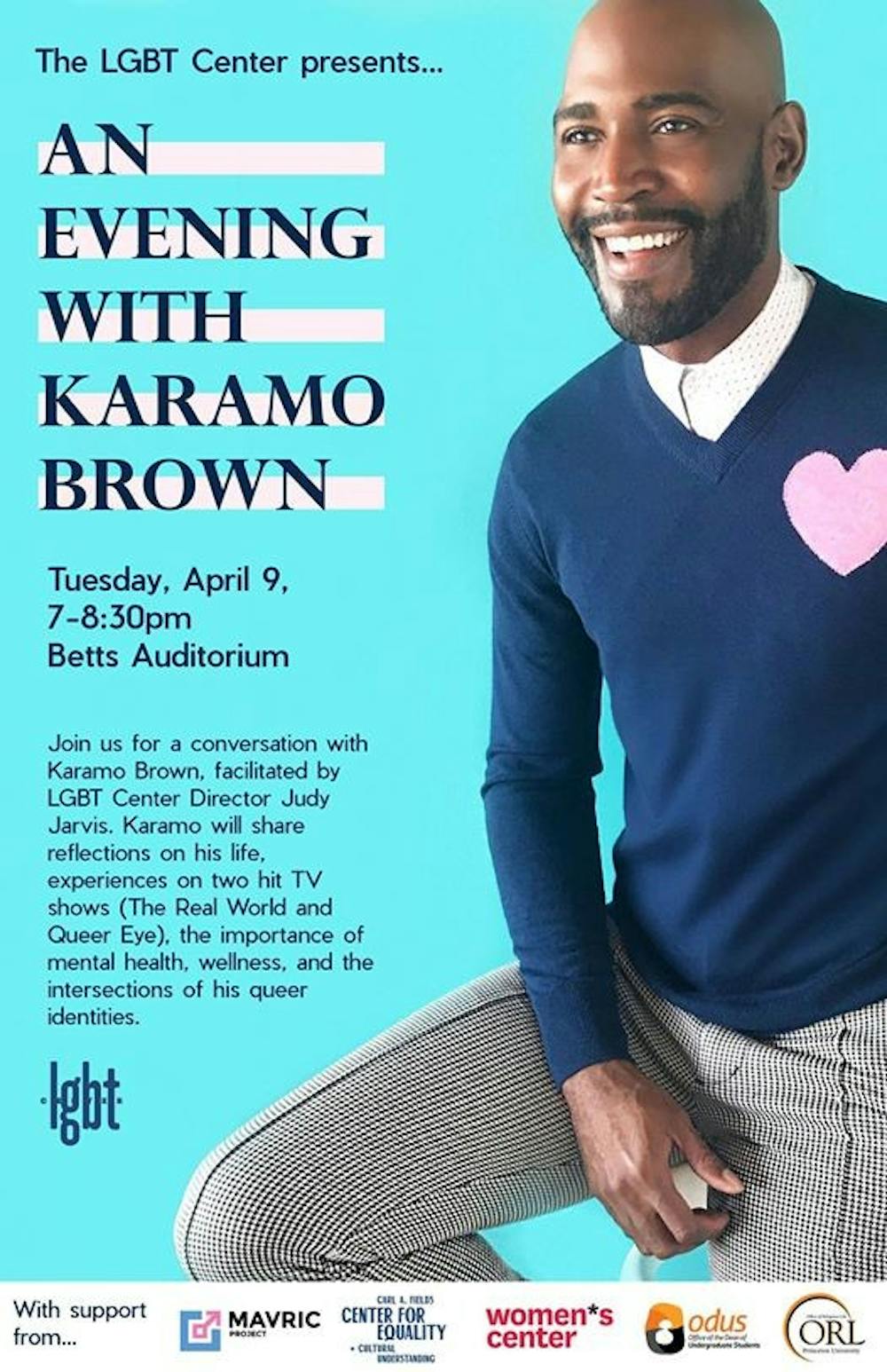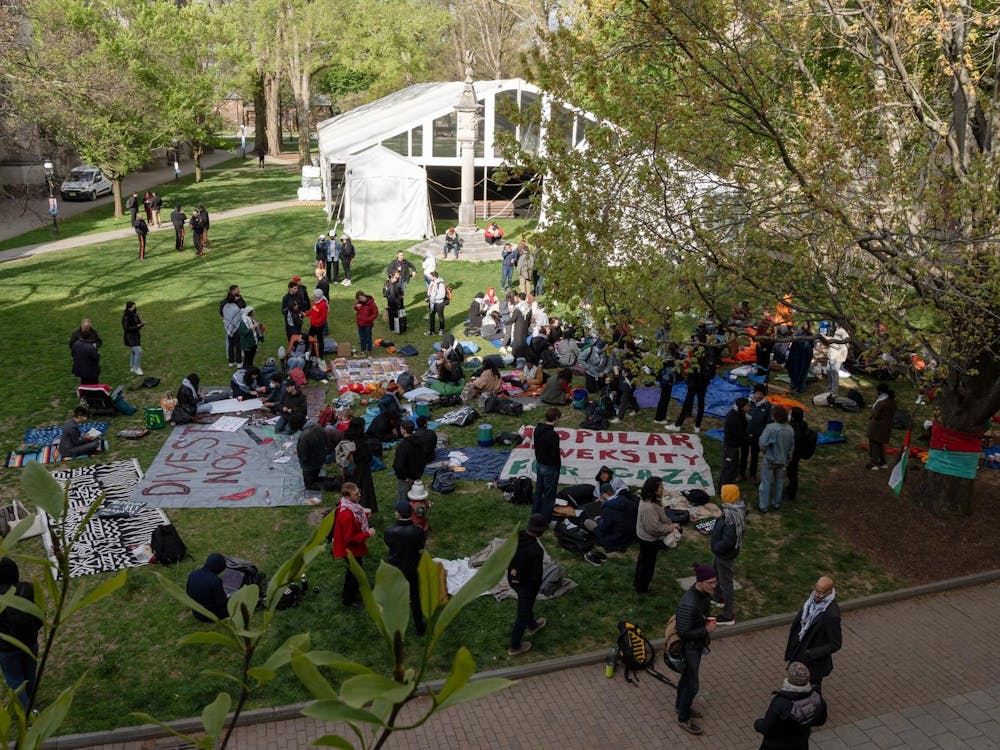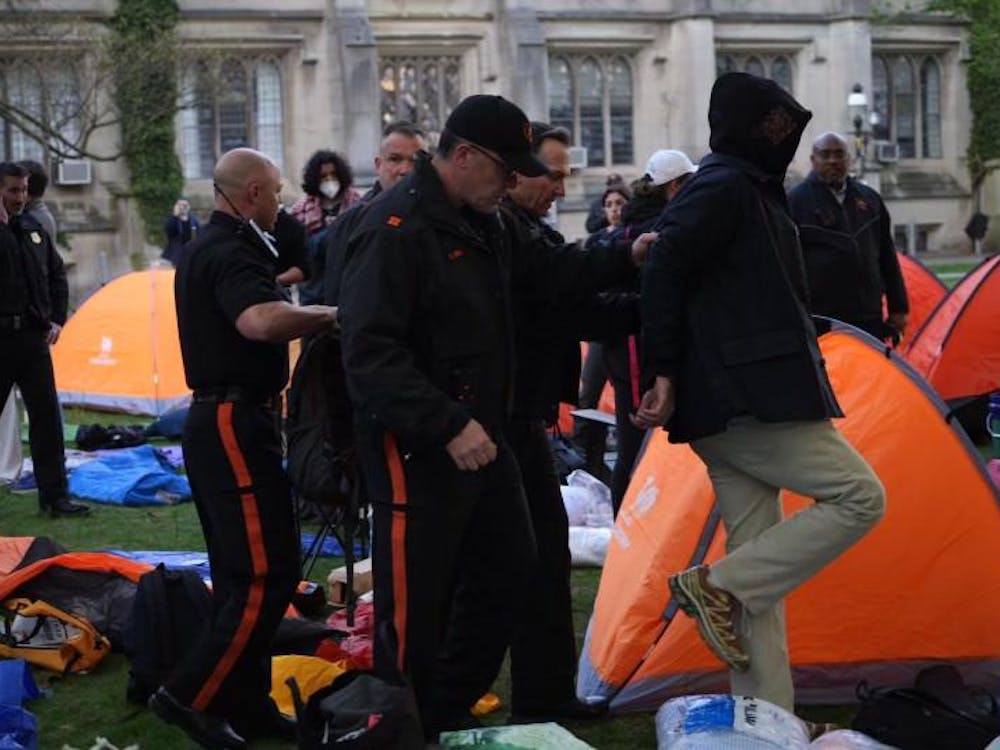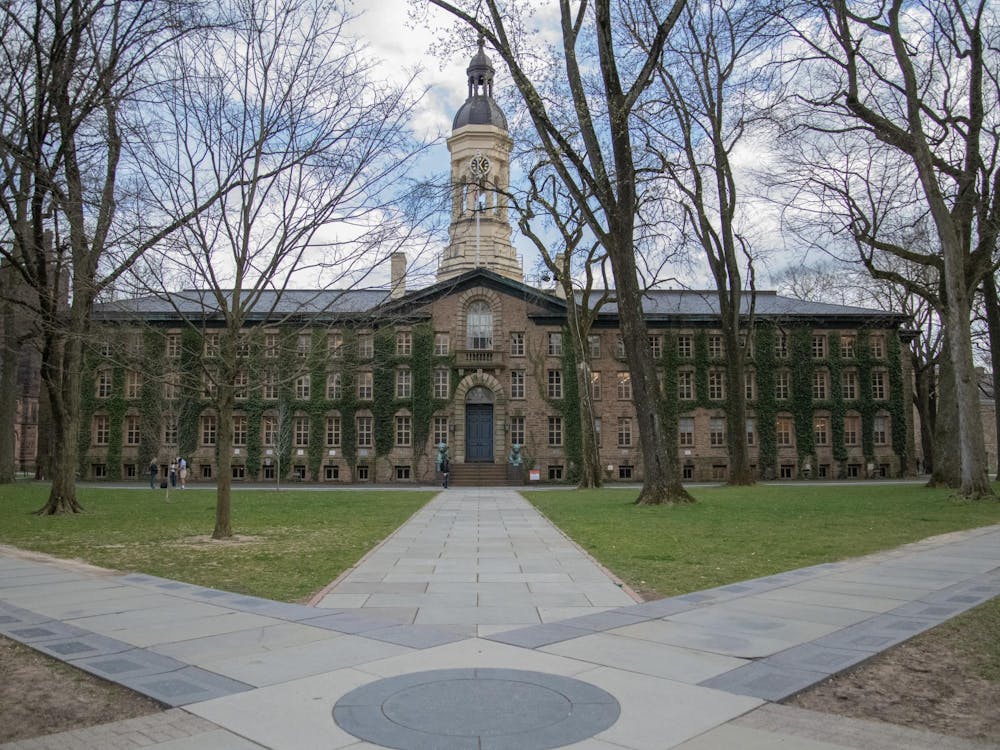In front of a fully packed audience in Betts Auditorium, “Queer Eye” star Karamo Brown spoke with LGBT Center Director Judy Jarvis about navigating identity, mental health, and toxic masculinity — often concurrently.
Within the first few minutes of the conversation, Jarvis asked Brown to elaborate on a point that he made in his memoir, “Karamo: My Story of Embracing Purpose, Healing, and Hope,” to “change the paradigm from ‘coming out’ as LGBTQ to ‘letting people in.’”
In response, Brown noted that, to him, the distinction between the two terms lies in boundaries and LGBTQ+ individuals’ rights to privacy.
“I think about all of my straight counterparts: none of them has to make these grand announcements to family members or strangers at family events about who they’re having intimate moments with, but yet, somehow, we tell LGBTQ people that they have to do this or they’re not proud of themselves, or they don’t want to be visible,” Brown said. “But no, I’m very proud of myself. I just have very clear boundaries about who I want to let into my life.”
Less than two weeks after the publication of Brown’s memoir, the third season of “Queer Eye” was released on Netflix on March 15, in which the Fab Five — comprised of Brown, Antoni Porowski, Tan France, Bobby Berk, and Jonathan Van Ness — provided “make-betters” (the show’s term for makeovers) for eight new individuals. Although Brown is officially the show’s “culture expert,” he believes that he is much more involved with cultivating mental health rather than “culture.”
“What everyone else does is awesome, but if you don’t figure out what the core issue is, then you’re just going to revert back once we leave,” Brown said. “Something that I tell people is that if it’s hysterical, it’s historical.”
Returning to his own relationship with himself, Brown noted the augmented difficulties that LGBTQ+ individuals often face when confronting their own mental health.
“Many people in the LGBTQ community have spent many years on a self-discovery journey, and it had to be internal,” Brown said. “They couldn’t share it out of fear of being treated badly in some way … [but] your journey of healing is on your own pace, and that’s okay.”
During the Q&A portion of the event, Brown admitted that he continues to struggle with his intersecting identities of being black, gay, and Christian.
“I’ve had all those experiences where I’ve felt like the outside world is challenging who I am,” Brown said. “Anybody who says that they don’t wake up — even the most confident person — and feel that way is lying. The journey of self-love, self-worth, and mental health is a daily process and a daily practice.”
When questioned about how he sees “Queer Eye” evolving in the future, Brown said that the Fab Five agree that they “constantly need to do more,” especially in terms of diversity.
“We need to see more, and people need to understand more,” Brown said. “It’s an ongoing conversation, and even if it doesn’t finish with us, the next show that comes after us will hopefully think, ‘Oh, Queer Eye was a success, so we need to do this, but we need to do it even better.’”

Brown’s appearance attracted a crowd beyond University students, including former alumna Taylor Morgan ’16, who found Brown “incredibly inspiring.”
“I love watching the show, and I just think that everything that Karamo and all the Fab Five do is so inspiring,” Morgan said. “Even though I’m not part of the LGBTQ, black, or male community, I think that everything that they say is so applicable to everyone.”
Conversely, Jared Holeman ’21 noted that Brown’s intersecting identities were exactly what made Holeman feel “very validated and so honored to be in [Brown’s] presence.”
“Karamo is one of the very few black gay celebrities that’s really out there,” Holeman said. “It’s just so inspirational to see someone so successful who keeps owning himself, especially because he’s also Christian, which really resonates with me.”
LGBT Center design intern Wendy Ho ’21 pointed towards the high turnout as an indication of Brown’s impact as a celebrity.
“I didn’t expect so many people to come, but at the same time, it speaks to how inspirational he is and how being radically honest about who you are draws people toward you,” Ho said.
“An Evening with Karamo Brown” was co-sponsored by the LGBT Center, the Office of the Dean of Undergraduate Students, the Office of Religious Life, the Women*s Center, the Carl A. Fields Center for Equality and Cultural Understanding, and the MAVRIC Project.









